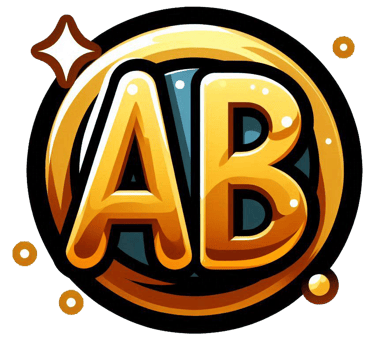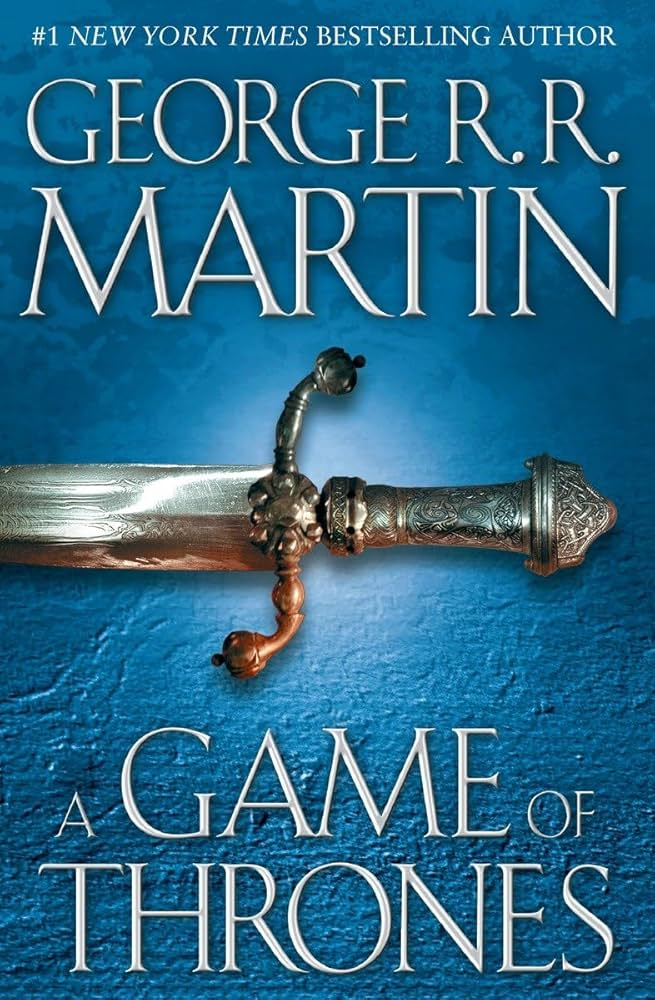

A Game Of Thrones
★
We honestly can barely believe this series was widely praised as it was. How it became popular is understandable since much of today's culture enjoys committing disturbing acts. The book itself was both overrated and deeply troubling, especially to the younger audiences. And we strongly advise against reading or watching it. First and foremost, the sheer amount of graphic violence, perverted content, and cruelty in this book is overwhelming. The cast of characters were bloated, and many were interchangeable in their ambitions. Almost every chapter either introduced a new name or subplot that often lead to more misery. There's no rest, no joy, no redemption. It was just endless manipulation, war, and suffering. It’s dark, indulgent, and far too brutal for the mind. The violence itself often feels less like storytelling and more like shock value for the sake of keeping readers glued. Scenes involving extreme savagery, especially against women and children, cross the line from narrative device into exploitation. If you're not understanding, it's the normalization of these horrors that desensitizes the minds of the reader. Worse still is how little hope or morality exists in Mr. Martin's world. There’s no balance, well-natured characters are punished, and the evil ones are rewarded or celebrated for their cunning acts. We understand that Mr. Martin wanted to avoid the typical “hero’s journey” tropes. Yet the way he went about it was all wrong; the result was a story devoid of meaning, and betrayal are corruption are glorified rather than looked down upon. The lack of clear moral grounding also made it difficult to care about anyone or anything in the story.
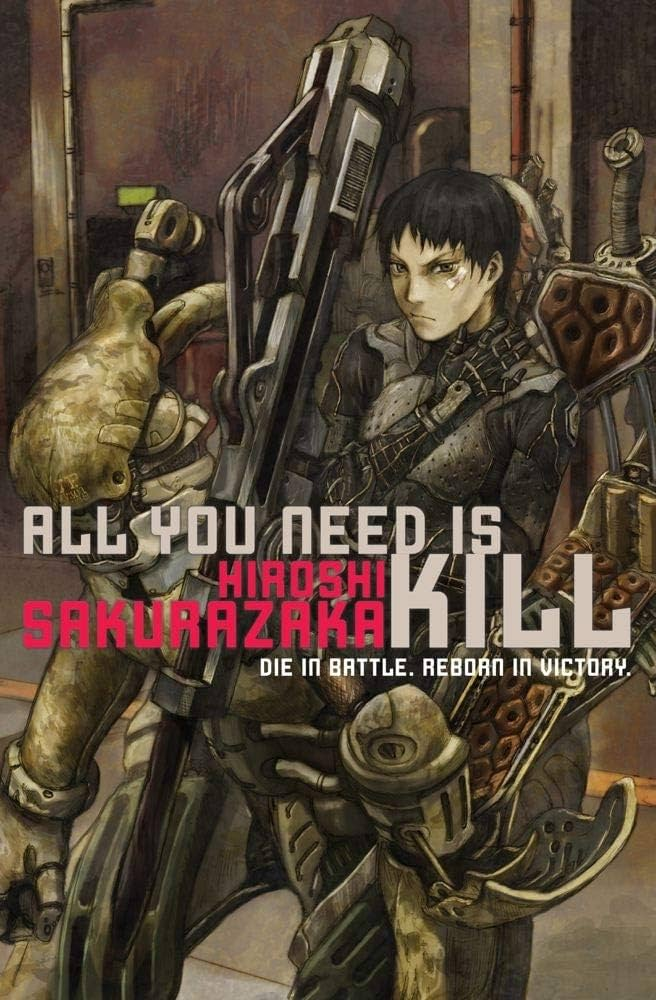

All You Need Is Kill
★★★
The premise of this book only intrigued us because the plot had time loop in it. The story of a Japanese soldier fighting an endless war against devilish invaders was hardly a hook. Keiji Kiriya experiences the same day over and over, growing with each death. His reactions felt only a little authentic, and seeing how his Japanese background influenced his responses added some depth. But, as much as we wanted to get caught up in the loop, it quickly became (literally) repetitive and slowed the pace of the story. The war against the Mimics was what really killed this book. Things just didn’t feel fully developed. The military world-building also didn’t do enough to raise the stakes, and the Mimics themselves had no personality or colour to them. While the action scenes were decent, they lacked the emotional weight we hoped for. Interestingly enough, this book did have a little romance in it between Keiji and female lead, Rita Vrataski. Yet it by no means resonated like what one would expect. It was underdeveloped at best, adding just a bit of development to the story. Truly, it was a subplot rather than something integral. The ending, though bittersweet, left us with mixed feelings. It was more sorrowful than satisfying. We also felt the movie and manga adaptations didn’t fully do justice to the book. In the end, it was an average read at best. Not at all remarkable. Giving it three-stars was us being generous due to how far the novel progressed with its manga and film adaptations for Westerners.
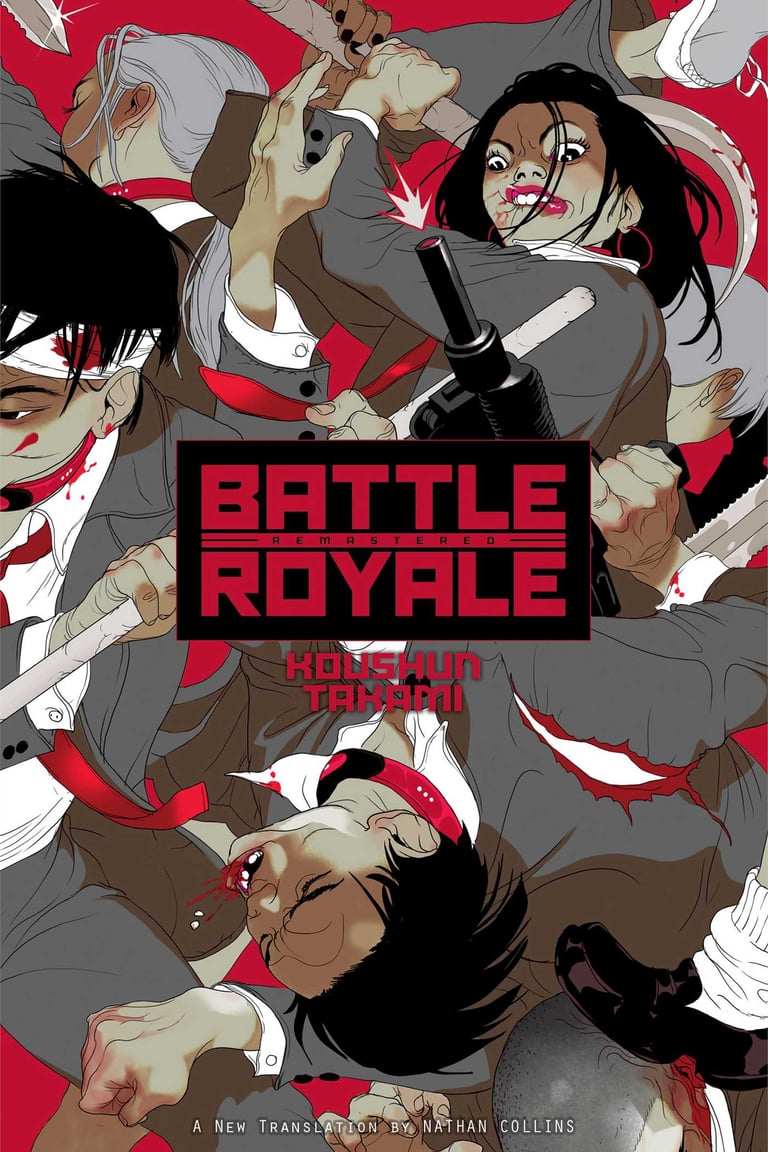

Battle Royal
★★
We only somewhat struggled with this book. The premise seemed intriguing at first—a brutal, high-stakes game where teenagers are forced to fight to survive. But as we dug deeper into the story, we were left with a strong sense of discomfort, mostly because of the excessive violence and gore. It was just a lot to take in, and honestly, it overshadowed any potential for meaningful storytelling. The level of brutality is far too overwhelming for a young mind. Almost every chapter introduced some new, graphic death with teenagers being violently killed by their peers. It's hard to shake the image of kids in this savage fight for survival, especially when you see they’re relatable. It felt almost exploitative, like the story was relying too much on shock value rather than offering something more thoughtful. And honestly, it's concerning that the book is being marketed to younger readers, both in book form and as a movie. The depiction of children fighting each other in such a gruesome way doesn’t seem appropriate for kids, or even young adults, to engage with. Much like the Hunger Games, there’s a clear, disturbing message about survival and societal control. Things are so over the top that it risks desensitizing its audience to real-world violence, rather than encouraging any kind of meaningful reflection. That said, we can admit the author did manage to deliver a somewhat satisfying ending. There were moments of heroism, and the conclusion—while still dark—did offer a sense of closure. Yet it did not help balance the brutality of the story.
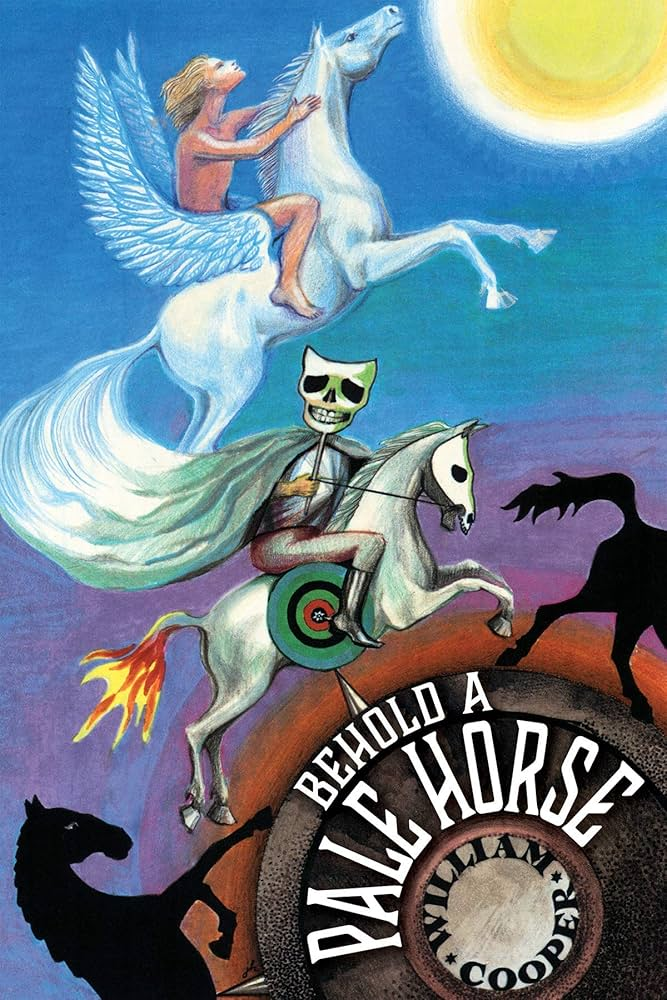

Behold A Pale Horse
★★★★★
In our view, a peak read. 5 stars without hesitation. It's one of those rare books that grabs you due to the amount of truth spread about the American government. Whether you agree with everything in it or not, there's no denying the impact it leaves. William Cooper died because of his beliefs, and he most certainly pulled his punches till the end. He challenged the status quo, asked hard questions, and forced readers to re-examine what they should think they know about their government and the many hidden agendas. In it, he stated declassified documents, personal testimony, and bold claims that some will find controversial. But! That’s exactly why the book matters. Cooper’s willingness to speak out and connect the dots that most wouldn’t dare to is what makes this a must-read. We cannot stress the importance of his testimony for those who have been doing their research in the conspiracy, or our an American citizen. Mind you that Mr. Cooper was raised in an American militarized household that vowed to protect their people. For such a person to have understood and go against such powers should be an eyeopener. In today’s world of media overload and filtered narratives, this book remains relevant over a lot of them. You don’t have to agree with every theory or conclusion to recognize its value, but the main aspect is that both the military and the government have been keeping secrets about the flying saucers from hell.
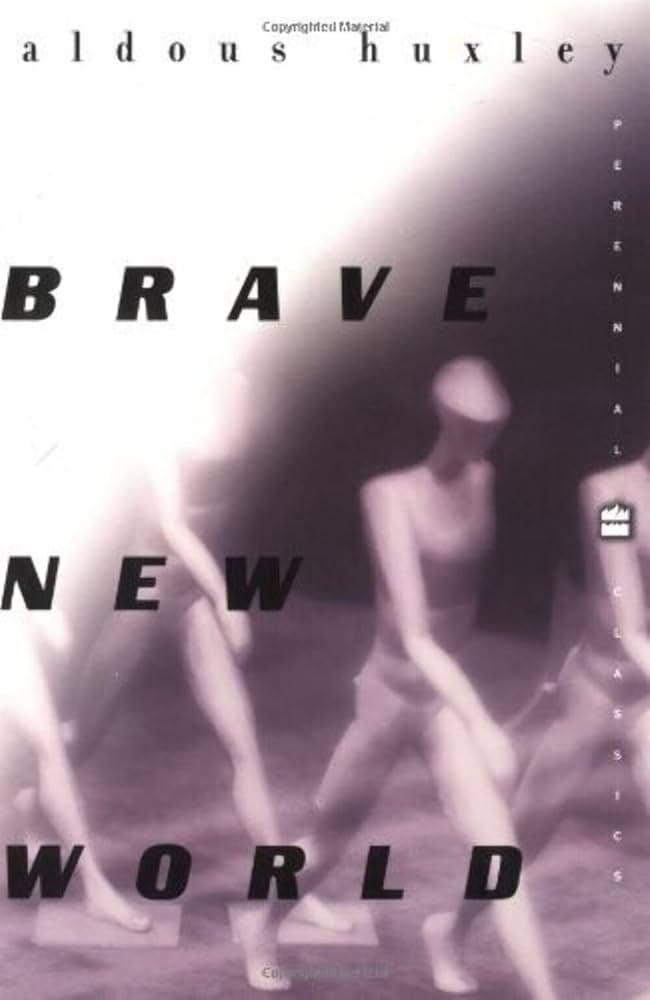

Brave New World
★
Aldous Huxley had to have an unsettling imagination to have designed this frustratingly prescient novel. Though it is widely considered a classic, both the book and its film adaptation was atrocious. We recognize the dystopian world Huxley paints—a society driven by consumerism, technological manipulation, and a sense of manufactured happiness. Our friends, this is evil. Not only are the characters shallow, but the plot feels like it was taken out of a Satanic bible. The most alarming aspect is how closely the conspiracy within the novel is mirroring our own world. Huxley revealed a time where governments, corporations, and media would work hand-in-hand to control every aspect of society! From reproduction to consumption, the wicked are going to implement this all under the guise of ensuring "happiness." We see the world becoming more and more like this every day, where genuine individuality is crushed by the weight of constant surveillance, pharmaceutical solutions, and the commodification of people's evil hearts. As the world leans ever closer to the kind of totalitarian, consumer-driven dystopia that Huxley wrote about, it becomes hard to ignore the uncomfortable parallels. What's even more disturbing is that the book is being taught to children in public schools. Or at least was during our generation. For a book that critiques the very systems of control that are increasingly shaping our society, its promotion to young minds seems ironic, if not dangerous.
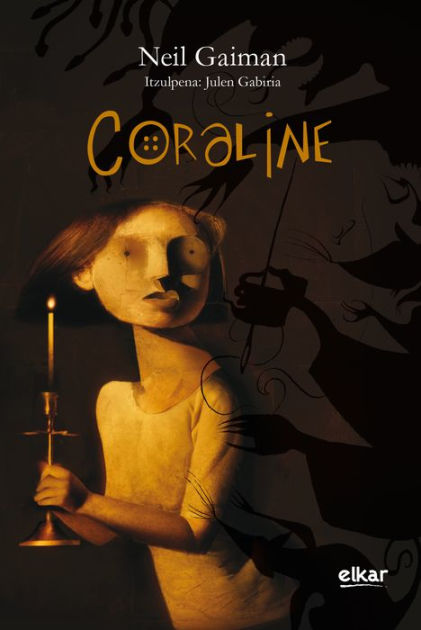

Coraline
★
We can barely comprehend why anyone would want to craft such a nightmarish book like this one. The story is disturbing, with a dark and twisted world that felt more suited for a horror novel than something aimed at children. Any child who'd seen this would have more likely been scarred in their young minds than entertained. The visual adaptation and the animated movie was no better. If anything, it worsened the eerie and sinister tone of the book, making the experience even more disturbing. The decision to turn it into a film was, frankly, a terrible idea. It’s a story that should’ve never come into existence in any form. As for the main character, Coraline herself, she was not at all relatable. She came across as selfish, irritating, and far too flawed in ways that made it difficult to empathize with her journey. The author’s portrayal of her just made the story even harder to connect with. Whatever category this book fell under, nightmare would suit it best. Consider the notion of children being led away into a fantasy land where some of their dreams come true, only for those children to lose not just their eyes but also their souls to someone pretending to be their mother. Mind you, this premise is no different than what most Satanic occults do to new recruits. We're starting to understand where the author got the idea of the book from. They, and any reader following this the type of material, should repent and never write anything as unpleasant as this again.
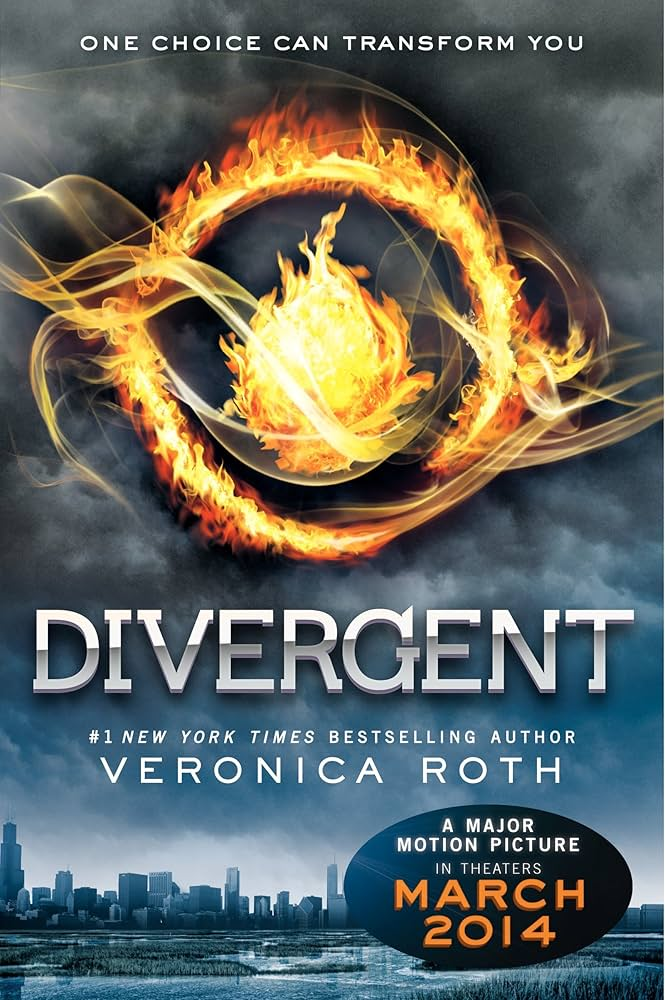

Divergent
★
We went into Divergent with cautious optimism. Much like the Hunger Games, it’s a bestselling dystopian novel with a strong female lead and a not-so intriguing premise. The book delivered a story that feels cliché, and frustratingly shallow. The faction system, which divides society into personality-based groups (Abnegation for the selfless, Dauntless for the brave, etc.), is an interesting concept on paper. But in practice, it falls apart quickly. The logic behind it made us question why would a society reduce one's identity to just one trait, then punish anyone who doesn’t fit neatly into a box? It felt more like a contrived plot device than a believable world-building foundation. The idea of “Divergents” also being dangerous because they exhibit more than one trait is never fully developed in a way that makes sense. Even after the final book. As for the characters, Tris starts with some promise, but her development feels inconsistent. She’s portrayed as brave and independent, yet often makes impulsive, reckless choices that seem more about moving the plot than genuine growth. The romance in the story also lacks emotional weight. There was simply no authentic chemistry between her and her lover, and their interactions sometimes felt awkward or just plain unnecessary. By the time the big twist comes, it feels more like a shift in genre than a meaningful conclusion. The ending, meant to be dramatic, also felt unearned. While this dystopian should have brought more clarity into the society faster, it didn't quite have any real substance to back it up. In short, we didn't care why this world failed; we just preferred for it to have succeeded.
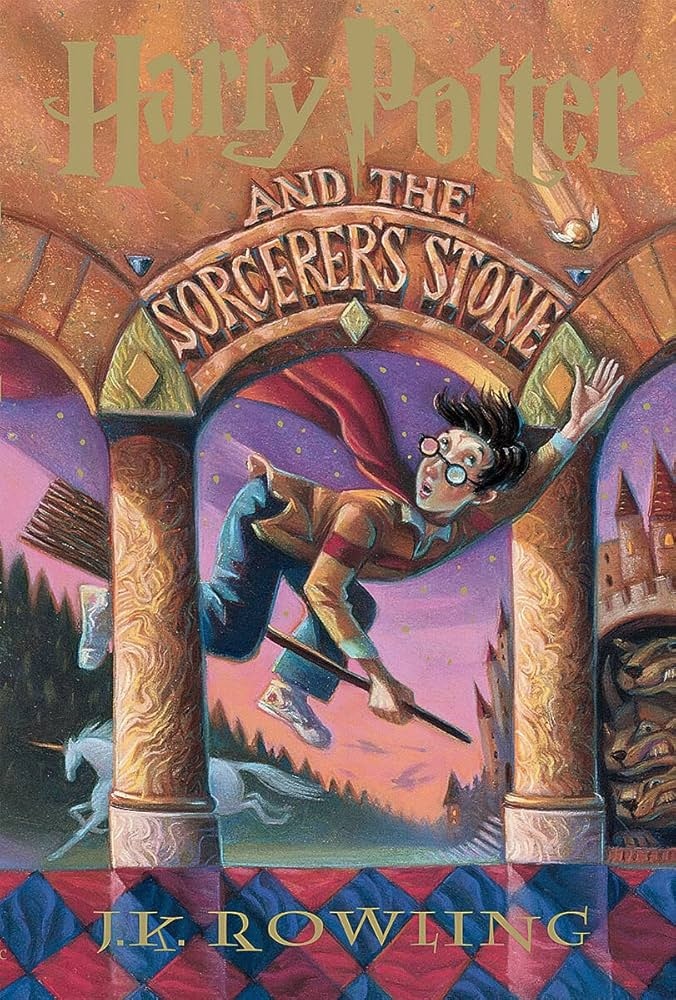

Harry Potter
★
We feel compelled to speak out about the dreaded Harry Potter series, a work that we deeply regret reading. While it has captured the imagination of millions around the world, we cannot ignore the serious concerns it raises from a biblical perspective. Our discomfort with the series is rooted in its use of real magic spells and the promotion of witchcraft. All such themes are against the teachings of Christ. The magic words, incantations, and potion brewing in Harry Potter is by no fictional or allegorical; it’s actually real, something witches embrace the author for having published as a children's fantasy. It is therefore needful for us to warn everyone that the practice of witchcraft and sorcery is strictly forbidden in the eyes of the Lord. The magical world J.K. Rowling created is nothing more than a reminiscent of occult practices. There have even been rumours about J.K. Rowling’s involvement with the devil to bring this series in existence, with claims that she sold her soul in exchange for success. Many also believe that she never wrote the series to begin with. Whether or not such things are true, the spiritual implications of such content cannot be ignored. We urge fellow Christians to steer clear of Harry Potter and to protect the children, less they inevitably engage in the occultic behaviour that real witches undergo. Let not thy children be tempted into watching the movies, reading the books, or joining their cultural, which does not align with true virtue.
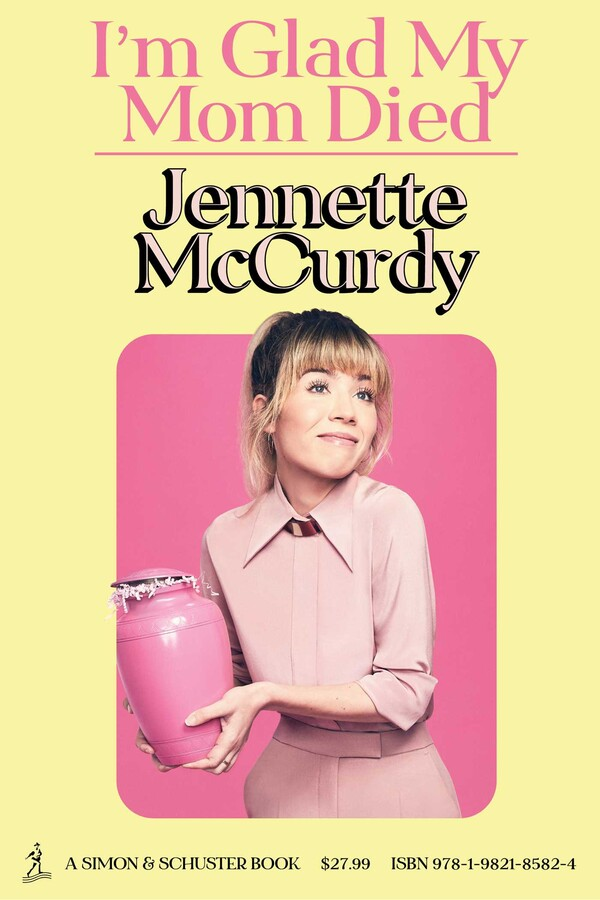

I'm Glad My Mom D***
★
As a group, we came into Jennette McCurdy's memoir with mixed feelings. Having grown up watching her on iCarly, we thought she was always a pleasant presence on-screen, even though her acting, particularly on that show, was very corny. Still, she had a certain charm that made her stand out. We saw potential in her career, one that could’ve flourished if she had made different decisions along the way. That said, we found the book troubling to read. Jennette’s portrayal of her relationship with her mother, and the claim of emotional abuse, is something we simply can't agree with. While it’s clear that her mom played a very controlling role in her life, the blame for the circumstances Jennette found herself in falls on both sides. Being a child actor in such a public, high-pressure environment comes with a certain set of challenges, and we don’t think it’s fair to place all the blame on her mother alone. The book also mentions Jennette's relationships with Miranda Cosgrove and other friends, and she paints them as bad influences during her formative years. We disagree with that view and believe the mother was right on this one. Don't get us wrong. Being a Mormon only proved the ugly side of that religion. The whole premise was simply a complicated reflection on the price of fame, the cost of being a child actor, and the impact of toxic relationships. We don’t think Jennette’s mother was the sole villain in this story—both mother and daughter share the blame for not handling things better. Just because one's seemingly abusive mother died does not make it alright to slander their name in a book. Sorry, Jennette.
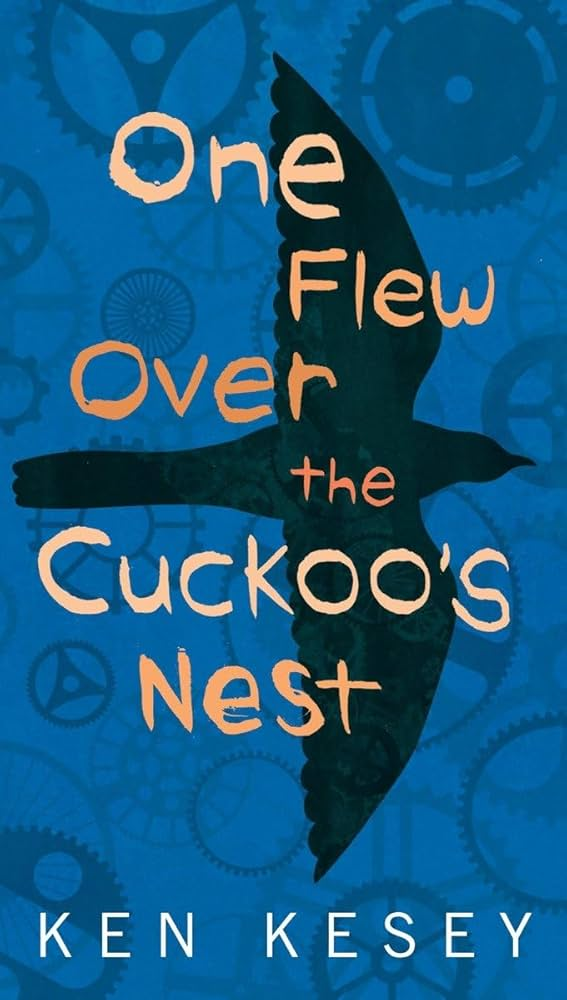

One Flew Over the Cuckoo's Nest
★
Such a disappointing tale by Ken Kesey. While it’s often hailed as a classic, we found it to be a problematic portrayal of mental illness and institutional business that doesn’t hold up to a reflection on what it actually means to be unstable. Rather than providing a nuanced or empathetic depiction of its characters, the book comes off as a dark, almost satirical comedy at the expense of people dealing with serious mental health issues. The characters, especially those in the mental hospital, are painted in such broad, almost caricatured strokes that it’s hard to take them seriously. Instead of showing the complexity of mental illness, we see exaggerated, one-dimensional portrayals of people who, for the most part, don’t experience any real growth or redemption. Many of the patients are stuck in their trauma, with no real sense of progress, leaving them demoralized and hopeless by the end of the novel. What’s worse is that these characters are treated almost like punchlines. By this, we mean that the author was mocking them rather than engaging with their struggles in a meaningful way. The staff, particularly Nurse Ratched, are similarly flat and one-dimensional, portrayed as cold, manipulative villains without any depth. The narrative itself missed the opportunity to explore the complexity of the relationship between care providers and patients. Instead, we’re left with a kind of us-vs-them dynamic that felt overly simplistic and unhelpful in understanding the truth behind one's mental health. What’s particularly troubling is that this book was being taught to students in schools.
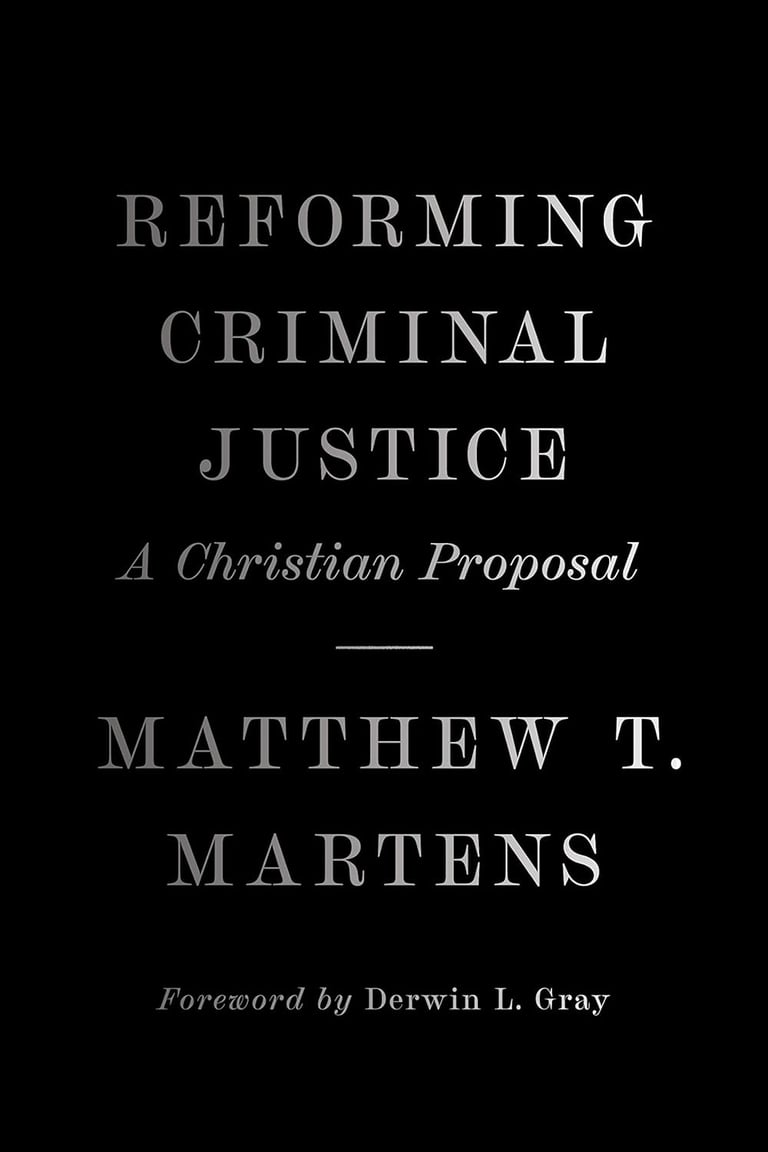

Reforming Criminal Justice: A Christian Proposal
★★★★★
One of the standout aspects of Martens’ book is its ability to bridge the gap between faith and the pursuit of justice. The author brings attention to the moral imperatives found within Christianity and seeks to apply them in a way that can reform and improve the criminal justice framework. Throughout the book, the author raises crucial questions about the fairness and effectiveness of our current legal system. They delve into topics such as punishment, rehabilitation, restorative justice, and incarceration. By drawing upon both biblical principles and legal expertise, they present a compelling case for reevaluating and reforming criminal justice practices. The author demonstrates a deep understanding of said legal frameworks and successfully weaves this knowledge into a Christian perspective. By doing so, they highlight the flaws within existing laws and policies, challenging readers to consider alternatives that align better with what our Lord and Saviour Jesus Christ values: compassion, forgiveness, and redemption. One of the strongest points of the novel is when Martens emphasizes the importance of individual responsibility and societal healing. They argue for a paradigm shift that prioritizes restorative justice processes and community support to address the root causes of crime effectively. The proposal encourages readers to consider how their faith can guide their individual actions within the context of a society seeking to restore and heal rather than merely punish.
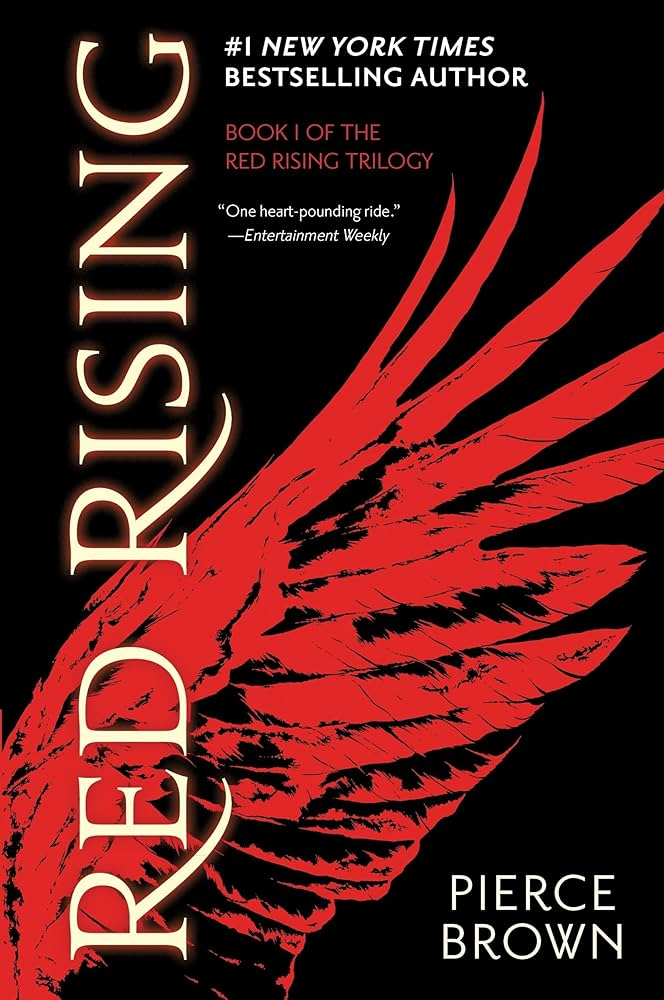

Red Rising
★★
Pierce Brown’s world-building is undeniably ambitious. Set in a time where society is divided into a rigid caste system based on colours, the narrative tries to focus on class struggle. However, while the premise is intriguing, the execution was derivative. The societal structure followed a predictable patterns, and the exploration was glossed over in favour of drama and action. There was potential here. At least until it was overshadowed by plot-driven events and excessive violence. The protagonist, Darrow, is a classic Gary Stu whose journey is central to the series. While his quest for justice is understandable, his character arc wasn't at all organic development. Some readers may find his resilience admirable, but for others, his repeated hardships come across as somewhat contrived, making his motivations feel less earned as the series progresses. The dark humour also didn't do him (or any other characters) justice. There was also inconsistent pacing with the series as a whole. While the first book pulls readers in with high stakes, later books fall victim to unnecessary filler and repetitive plotting. Like the side character, Cassius. His introduction and upbringing felt plausible, but his ending was just terrible. For those who identify with the Golds, or those who might appreciate their ruthless behaviours, the series could resonate more deeply with more righteousness to it. But for many, the Red Rising series will certainly leave readers hanging on the spiritual aspect. Serious. That depth readers should crave after simply isn't in this series.
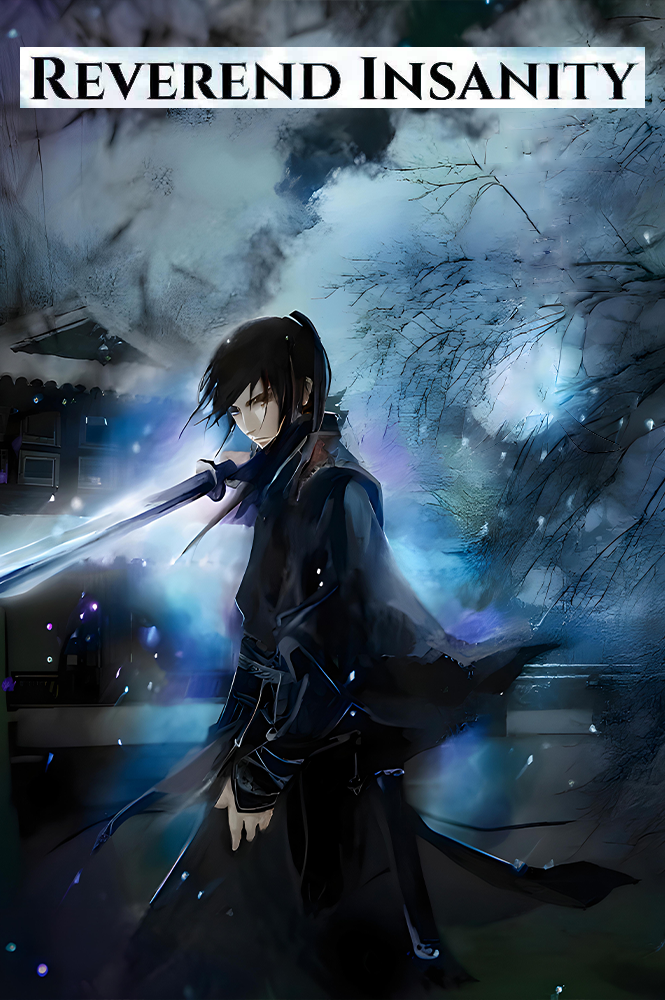

Reverend Insanity
★★★
We read Reverend Insanity—or at least, we tried to—and we honestly believe it is a waste of time for anyone who has. The book was far too long, with more than a million words. While impressive, the story neve even finished. No real ending, no satisfying payoff—just an abrupt halt after what felt like an exhausting marathon. What drew us in initially was the promise of time travel. That concept alone kept us curious enough to keep flipping through pages, but truthfully, most of us ended up skimming. The pacing was uneven and the writing was stretching scenes just to fill space. Most book series tends to do that. It began to feel less like storytelling and more like a deliberate effort to consume the reader’s time. The main character, Fang Yuan, was another difficult aspect. He was outright evil. He manipulated, lied, and used everyone around him without the slightest hint of remorse. While the author clearly intended to present a “clever” anti-hero, it came off as too much cruelty. When success is built entirely on exploitation and deception, eventually thing will stop growing. And that's exactly what happened with his novel. The book itself was soaked in occultic influences that made us uncomfortable. There was no light, no moral anchor, just an endless cycle of survival at any cost. That tone wears people down quickly. And the whole situation surrounding the author didn’t help. Reports say he was imprisoned in China, and then the story was discontinued without a clear explanation. At the end of the day, the story was draining, dark, and left unfinished. We would never recommend it to anyone.
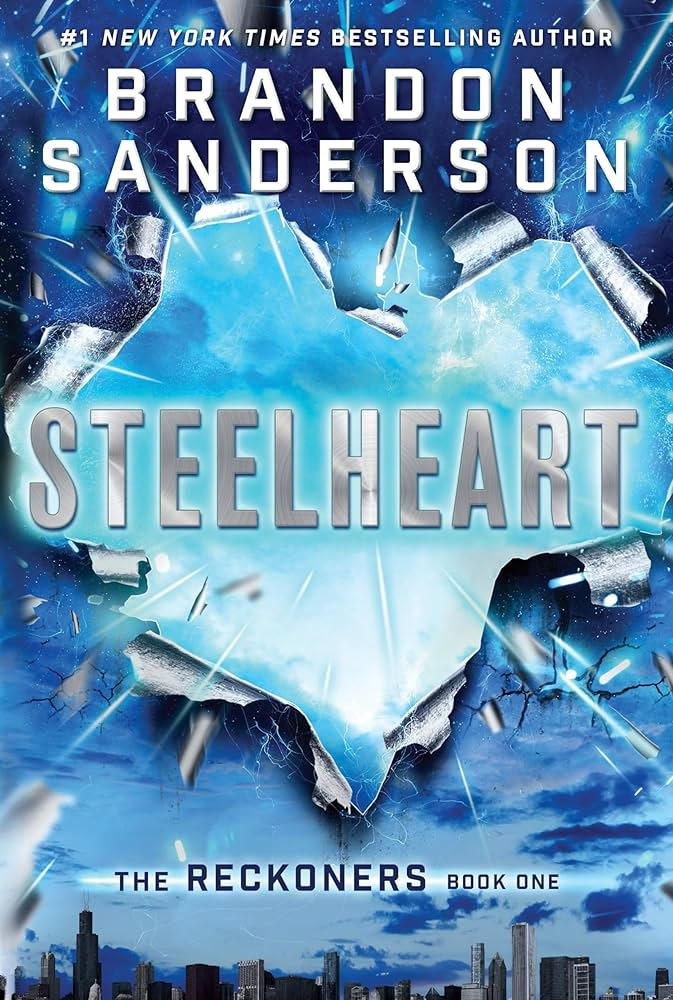

Steel Heart
★★
Yet another premise of superheroes turned villains in a dystopian world. While this overused trope has some potential, Sanderson's execution left a lot to be desired. The book didn’t live up to the hype despite the promise in the premise being met. The powers is where Steelheart really falls short. We were expecting inventive, mind-blowing abilities from these Epics, but what we got instead were powers that felt basic and, at times, downright dull. There’s very little depth to how the powers work, and they don’t come across as particularly interesting or exciting. The characters spent too much time talking about the Epics’ powers than actually dealing with them in meaningful or creative ways. That results in the stakes feeling much lower than they should be. The action sequences, though frequent, also felt more like a checklist of "fight scenes" than anything truly impactful. Then there’s David Charleston, our protagonist. If you’ve ever read a superhero story before, you’ll probably recognize his character immediately: the "reluctant hero" driven by vengeance and a thirst for justice. Unfortunately, David's quest felt more like a plot device than motivation. He’s corny and self-assured to a fault, constantly delivering quips and sarcastic one-liners that come off as forced and annoying rather than endearing. It felt like the book was trying too hard to make him the cool, witty hero, but it just made him harder to take seriously. The supporting characters don’t add much to the story either. Steelheart ultimately felt like a missed opportunity.
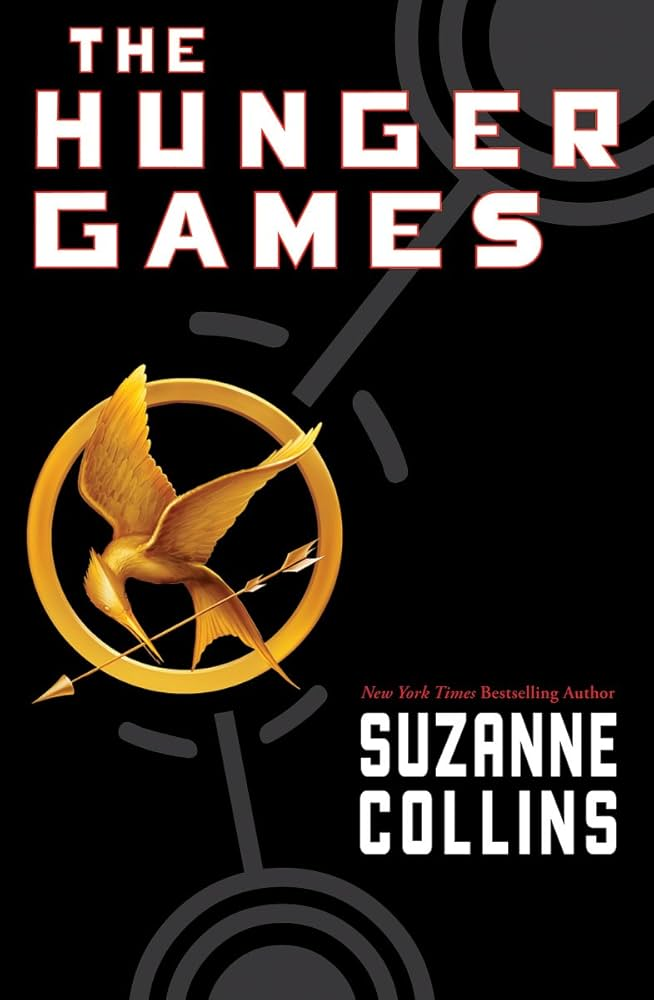

The Hunger Games
★★
We really struggled with this series. While it’s a popular and widely acclaimed series, it's troubling in many aspects, especially regarding its portrayal of women. While Katniss Everdeen, the protagonist, is undoubtedly a strong character, the series as a whole has a more negative, empowering view of women. They are largely reduced to being pawns in a system that uses them for survival, manipulation, or romantic entanglements. The relationships themselves are presented more like a contest for male affection rather than focusing on the main character's development. It’s as if the female protagonist’s role is too often centered around competing for love, rather than focusing solely on the fight against injustice. While Katniss is strong, there’s an underlying tone that suggests her value is ultimately tied to the men in her life, which feels like a missed opportunity for a more nuanced portrayal of women in such a crucial role. Another glaring issue is the central concept of the Games themselves; the forced sacrifice of children for sport. The districts, and the system that divides them, are disturbingly cruel. The idea of using children as entertainment for the Capitol’s amusement is not just a plot point, but a reflection of a deeply broken system that dehumanizes the readers that picks up this book. The violence, especially involving children, is extreme and unnecessary. The book seems to glorify this bloodshed as a way to convey the gravity of the dystopian world, but the reality is far more disturbing. Just that concept alone should have been abolished long ago.
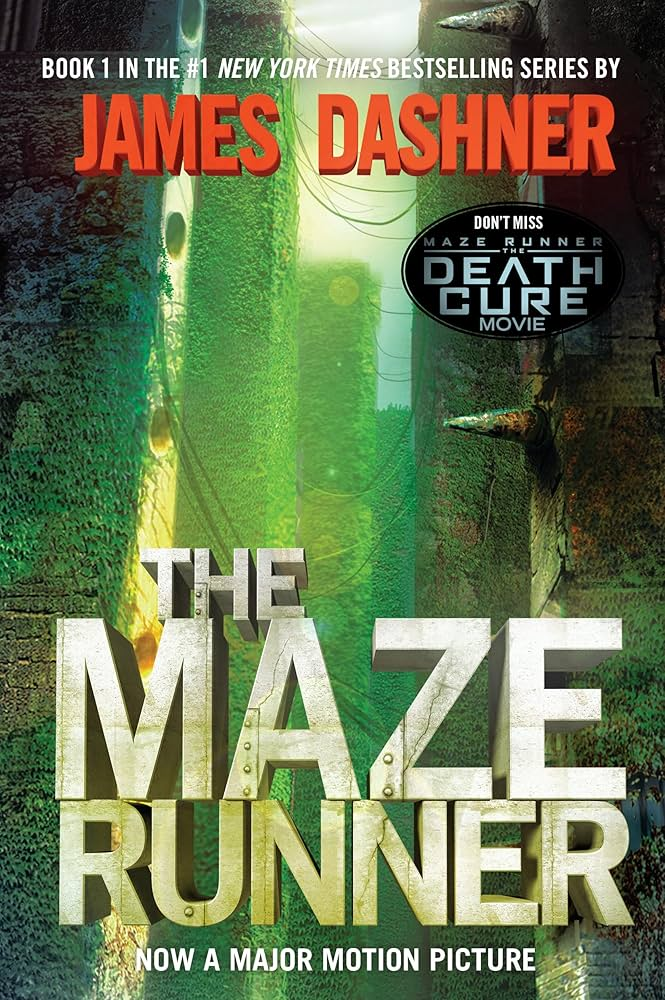

The Maze Runner
★
This was not an enjoyable book, and the hype around it—well—there never should have been any. While the premise had potential—a mysterious maze, a group of teens with no memories, a hidden organization pulling the strings—it eventually falls flat toward the end. The execution was only alright, and the book felt like a puzzle that never quite came together. There were too many questions and not enough meaningful answers. For instance, the expectations of a high-stakes challenge was never truly met. Most of the book was filled with confusing slang, repetitive dialogue, and characters running in circles. Both literally and figuratively. When the action does pick up, it wasn't rather than exciting per say. Thomas, the protagonist, was difficult to connect with. His character development was minimal, and we’re given little reason to root for him beyond the fact that he’s the main character. Teresa’s role is similarly underdeveloped, and the forced telepathic connection between her and Thomas came off as lazy storytelling rather than an intriguing twist. Most of the other characters also felt like expendables. Oh wait, it's because they were! What frustrated us most was the lack of real answers. The mystery behind the actual maze was dragged out so long that it stopped being intriguing. As a Christian, we should have seen this coming since the organization behind it all was called "WICKED". It is very easy for to say not to get invested in this story.
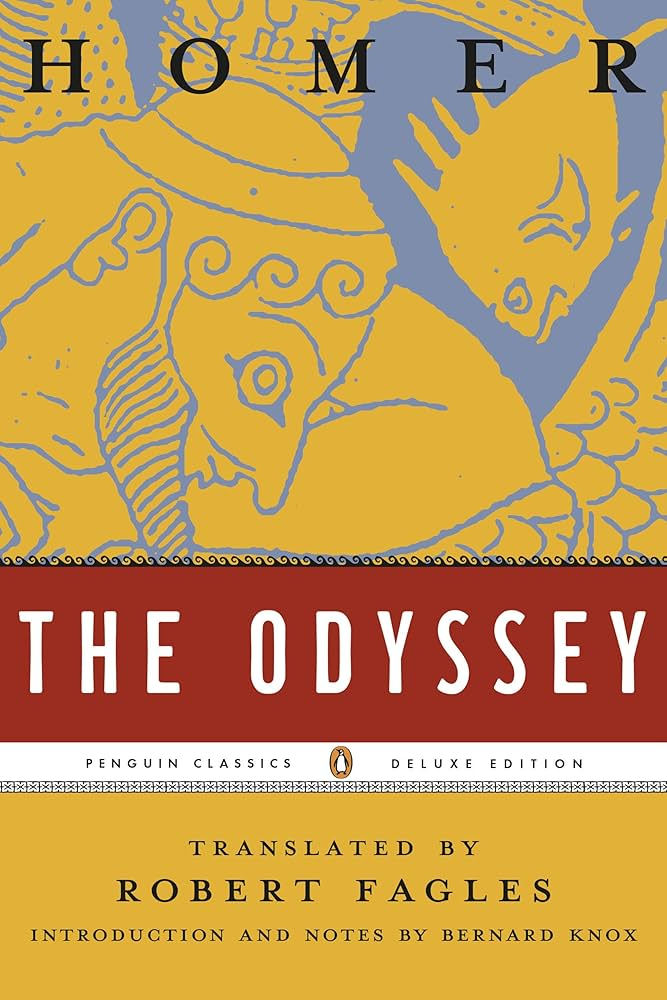

The Odyssey
★★
We didn’t quite enjoy this book as many would think. What’s hailed as a cornerstone of Western literature felt more like a tedious, winding road filled with devils from hell, self-pity, and excessive flashbacks. Yes, Odysseus had a rough journey, but how many times do we need to hear him retell his suffering in drawn-out, overdramatic fashion? Some parts had potential—the Cyclops episode, for example, was entertaining in a campy, B-movie way. But after that, it quickly became bland. The Sirens (which are devils) were more melodramatic than mythical, and the whole Scylla and Charybdis sequence dragged on like a bad dream. The constant theme seemed to be: pick your doom, then listen to Odysseus brag about escaping it. Quite the faithless book. Speaking of Odysseus, calling him a "hero" feels generous. He’s less noble warrior, more manipulative liar. His cunning felt more like deceit—especially when it came to tricking those devils or deceiving his own wife. Penelope’s patience was impressive, but the way Odysseus handled his homecoming was frustrating. The only character we actually rooted for was Telemachus, who showed far more growth and initiative than his father. In the end, The Odyssey reads more like a chaotic soap opera with idol worship, vague morals, and a “hero” whose main talent is lying through his teeth. Mythology fans might find something to appreciate, but for us, it was a chore to finish.
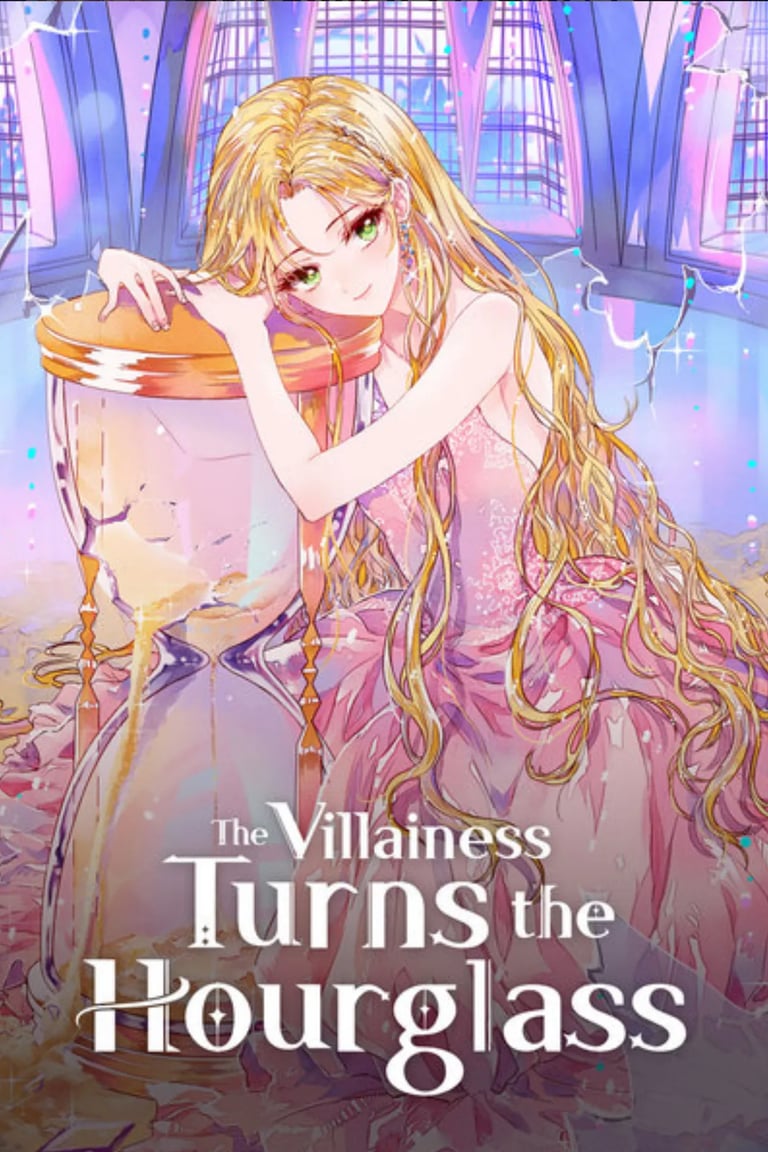

The Villainess Turns The Hourglass
★★★
A female lead can hardly ever be done right. This book, however, managed to prove us wrong. It had a premise that seemed promising, mainly due to the time-reversal plot. The idea of a protagonist traveling back in time and essentially getting a "second chance" at is sometimes an intriguing one. She's also able to manipulate time backwards with said hourglass. That in itself gave the story a unique twist. The fantasy-driven aristocratic setting also provided a comforting backdrop, and the world-building had its moments of potential. However, the magic aspect, particularly the witch-related elements, didn’t sit well with us. Because of that, it felt very off for us on a thematic level. The use of magic and witchcraft just didn’t align with the kind of story we were hoping for. The romance was another major letdown. The repetitive crown prince falling for the female lead is overly familiar and, frankly, boring. It didn’t offer anything new or exciting, and the dynamic between the two characters felt forced and clichéd. Their relationship was also one of the more predictable aspects of the book. While the time travel concept and aristocratic lore always has potential for almost any tale, the book falls short due to its reliance on repetitive tropes and the overuse of magic. Not entirely uninteresting, but not enough to recommend. Bare in mind that the story did receive a comic book adaptation due to its impeccable story-telling. The artwork in the comic book was fair and stayed true to the novel. But at the end of the day, both fell short.
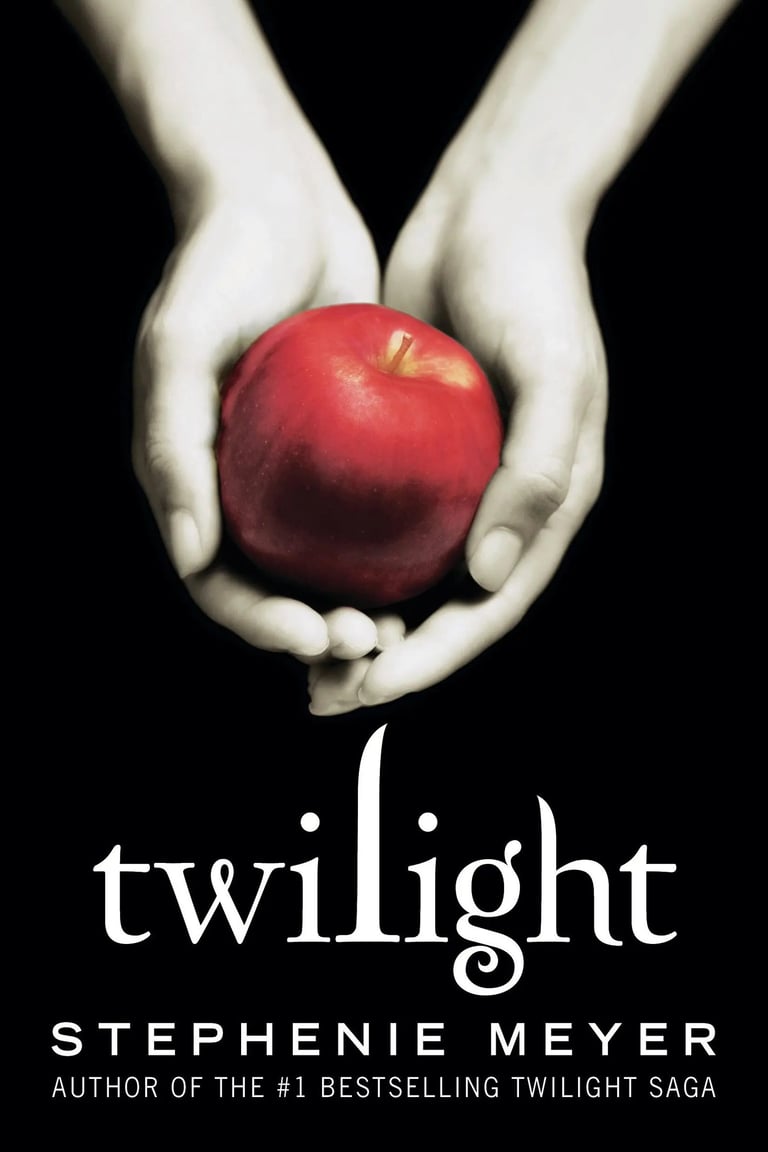

Twilight
★
As Christians, we should all have serious concerns about this ridiculous series. That includes both the books and the movies. While it has a massive following, the series promotes unhealthy relationships and dark, occult themes. The romance between Bella and Edward is especially troubling. Their relationship isn’t one of mutual respect but obsession and control. Edward’s possessiveness and constant decision-making for Bella, without her consent, sends a dangerous message about what love should look like. It’s a far cry from the healthy, Christ-centered relationships we are called to embrace. Let us also remind the reader that this is an age-old vampire mentally abusing a little girl until she, too, becomes a soulless creature. The supernatural elements were too problematic. Consider how the glorification of vampires and werewolves, creatures from hell, is concerning. These beings are romanticized as desirable, eternal, and morally conflicted, which directly contradicts biblical teachings about light and darkness. The idea that evil, supernatural creatures can be portrayed as beautiful and heroic distorts the line between good and evil. What’s worse is the trend this series had started. Many young adult authors are jumping on the vampire and supernatural romance bandwagon, which is promoting the same troubling messages. It’s a trend that encourages unhealthy relationships and spiritual confusion. Any type of trend that glorifies dependency on unhealthy relationships is not a trend to follow.
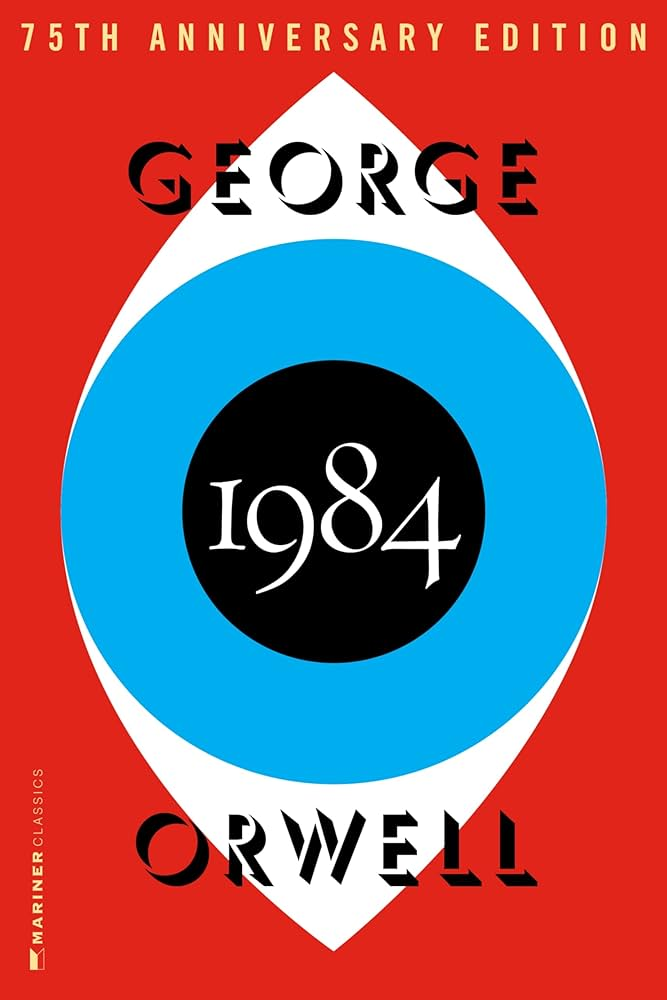

1984
★
First, we'd like to apologize for showcasing this book. Not just because it's a terrible book, but because (by the cover), it is very evil. By no means is this a good book, especially when the story is extremely disturbing. The novel is a bleak vision of a world where totalitarianism reigns and personal freedom is nonexistent. The surveillance, manipulation of truth, and the power of Big Brother are elements that are honestly being seen in today's society. Seriously. We are already slipping toward something like it. The notion of constant surveillance, the rewriting of history, and the suppression of individuality. Our friends, this is by no means a dystopian fiction; it’s been becoming real in various parts of the world. Watching Winston's descent into despair felt like watching a disturbing idea being fulfilled by the devil. Someone ought to have changed the genre to horror. Big Brother, the Party, and the whole system of control in the novel is nothing more than a malicious force, an embodiment of everything we should despise about unchecked power. The way the Party enforces its will on people—through fear, lies, and cruelty—is what we do not stand for as born again Christians. Orwell’s exploration of this manipulation of truth is just another reminder of how vulnerable the masses are to the evil forces that shape their world. By no means can we appreciate it or recommend this documentary to anyone. Be they truth seekers or conspiracy researches, it is not worth looking into.
